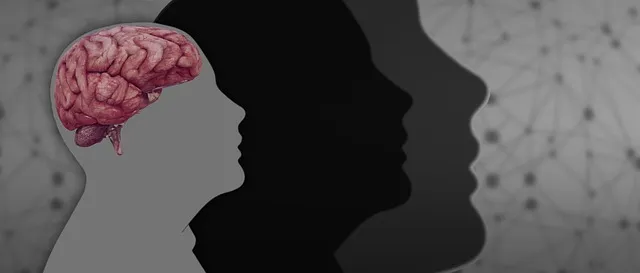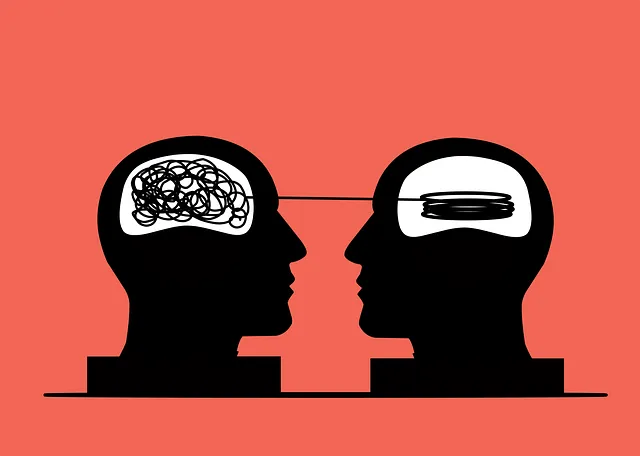Englewood Kaiser Permanente behavioral health providers emphasize holistic mood regulation through cognitive behavior therapy (CBT), mindfulness practices, and social support networks. They offer CBT as a powerful tool for managing negative thought patterns and behaviors, empowering patients to control moods effectively. Mindfulness and meditation techniques, taught through their Mental Health Education Programs, enhance stress management and emotional resilience. Physical activity and nature immersion are also recommended for mood stability, promoting mindfulness and reducing stigma. Additionally, lifestyle adjustments like proper nutrition, sleep, and social connections are crucial for improving mental well-being, as advocated by Englewood Kaiser Permanente behavioral health providers.
Explore effective mood regulation strategies as outlined by Englewood Kaiser Permanente behavioral health providers. This comprehensive guide delves into various techniques, from cognitive behavioral therapy (CBT) for managing moods to mindfulness and meditation for emotional balance. Discover how physical activity, nature immersion, and lifestyle adjustments, such as nutrition, sleep, and social connections, play pivotal roles in enhancing mood stability.
- Understanding Mood Regulation: An Overview by Englewood Kaiser Permanente Behavioral Health Providers
- Cognitive Behavioral Therapy (CBT): A Powerful Tool for Managing Moods
- Mindfulness and Meditation Techniques to Calm Emotional Storms
- The Role of Physical Activity and Nature in Enhancing Mood Stability
- Lifestyle Adjustments: Nutrition, Sleep, and Social Connections for Better Mood Regulation
Understanding Mood Regulation: An Overview by Englewood Kaiser Permanente Behavioral Health Providers

Understanding Mood Regulation is a critical aspect of mental well-being, as highlighted by Englewood Kaiser Permanente behavioral health providers. These experts emphasize that mood regulation strategies are essential tools for managing emotional states, especially in navigating life’s challenges and stressful situations. By employing various techniques, individuals can gain better control over their emotions, enhancing overall resilience and quality of life.
Englewood Kaiser Permanente behavioral health providers offer valuable insights into different approaches to mood regulation. They advocate for a holistic view, considering factors like cognitive behavior therapy, mindfulness practices, and social support networks. Moreover, they suggest that building empathy within communities through public awareness campaigns can significantly contribute to an individual’s ability to manage their mood effectively, offering a supportive environment and fostering Anxiety Relief.
Cognitive Behavioral Therapy (CBT): A Powerful Tool for Managing Moods

Cognitive Behavioral Therapy (CBT) stands as a powerful tool in the arsenal of mood regulation strategies, offered by Englewood Kaiser Permanente behavioral health providers. This therapeutic approach focuses on identifying and changing negative thought patterns and behaviors that contribute to mood disturbances. By helping individuals understand the connection between thoughts, feelings, and actions, CBT empowers them to manage their moods more effectively.
Through structured sessions, CBT encourages patients to develop a self-care routine tailored for better mental health, integrating stress management workshops and conflict resolution techniques. This holistic approach not only equips people with practical tools for navigating daily challenges but also fosters resilience in the face of adversity. By learning to challenge distorted thinking and adopt healthier coping mechanisms, individuals can experience lasting improvements in their emotional well-being.
Mindfulness and Meditation Techniques to Calm Emotional Storms

Englewood Kaiser Permanente behavioral health providers emphasize the power of mindfulness and meditation techniques to navigate and calm emotional storms. These practices, deeply rooted in ancient wisdom, involve focusing on the present moment, accepting emotions as they are, and cultivating a sense of inner peace. By incorporating mindfulness into daily routines, individuals can enhance their ability to manage stress, improve emotional regulation, and foster overall well-being.
Englewood Kaiser Permanente’s Mental Health Education Programs Design encourages patients to explore various meditation techniques, such as deep breathing exercises and guided visualizations. These tools not only help in calming the mind but also boost confidence and encourage positive thinking. By regularly engaging in these practices, individuals can build resilience against emotional turmoil, making them more equipped to handle life’s challenges with greater equanimity.
The Role of Physical Activity and Nature in Enhancing Mood Stability

Regular physical activity and spending time in nature have been recognized as powerful tools for enhancing mood stability by Englewood Kaiser Permanente behavioral health providers. Engaging in physical exercises, such as walking, running, or even gentle yoga, triggers the release of endorphins, often referred to as “feel-good” hormones, which can significantly reduce stress, anxiety, and symptoms of depression. The rhythmic movements of exercise create a meditative state, allowing individuals to detach from negative thought patterns and fostering a sense of calm.
Moreover, immersing oneself in nature has profound effects on mental well-being. Research suggests that simply walking in green spaces or forests can lower blood pressure, improve cognitive function, and increase overall happiness. The tranquility and beauty of natural environments encourage mindfulness, helping individuals to cultivate present-moment awareness and build empathy towards themselves and others—a key component in Mental Illness Stigma Reduction Efforts.
Lifestyle Adjustments: Nutrition, Sleep, and Social Connections for Better Mood Regulation

Englewood Kaiser Permanente behavioral health providers emphasize that lifestyle adjustments play a pivotal role in effective mood regulation. Nutrition is a key pillar; incorporating foods rich in omega-3 fatty acids, vitamins B and D, and magnesium can significantly boost mood and overall mental well-being. Adequate sleep, generally recommended as 7-9 hours per night, is crucial for regulating hormones that influence mood, helping to prevent swings and promote stability.
Social connections are another vital aspect. Building and maintaining strong relationships provides a support system and promotes feelings of belonging and purpose. The guidance offered by Englewood Kaiser Permanente behavioral health providers encourages the development of a robust self-care routine that integrates these lifestyle elements for improved crisis intervention and better mood management.
Englewood Kaiser Permanente behavioral health providers offer valuable insights into mood regulation strategies. By combining cognitive behavioral therapy, mindfulness practices, physical activity, and lifestyle adjustments like nutrition and sleep, individuals can effectively manage their moods and achieve greater emotional stability. Incorporating these holistic approaches can lead to a more balanced and fulfilling life, as backed by the expertise of these specialized healthcare professionals.






